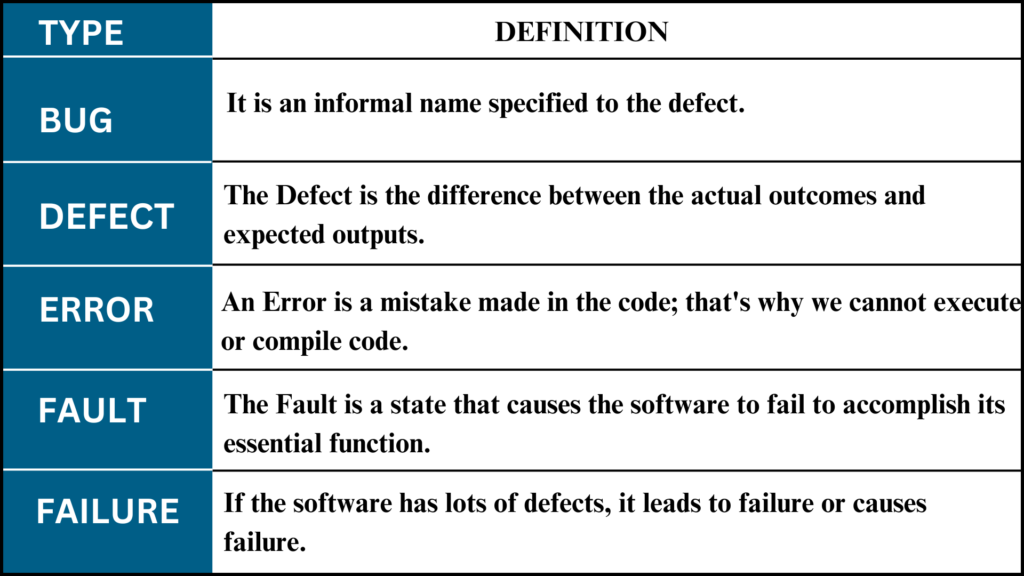In software improvement, the terms “Bug ,” “error,” and “Fault/Failure ” are regularly used interchangeably, but with extraordinary meanings
01.Bug
A “bug” is a general term for any problem in software that causes it to behave in an unpredictable way or produce abnormal results. It is a flaw or defect in the software code that leads to a malfunction.
Bugs can be of various varieties Some of them are:
📌Bugs affecting algorithms.
📌Bugs impacting logic, such as infinite loops.
📌Bugs appearing due to uninitialized variables a
Example: A bug May cause a Click button on a website to stop working or display incorrect information.
02.Error
An error is a coding or programming mistake that is typically caused by wrong syntax or erroneous loops. Errors appear in source code as a result of inconsistencies or outright flaws in the internal structure. They are anomalies caused by developer errors, oversights, or misunderstandings.
FailierErrors come in a variety of types:
📌Calculation errors due to incorrect formulas Data handling
📌issues are created by overwriting required files.
📌Configuration failures caused by limited storage capacity.
03.Fault
Software faults can develop when a program is not built to handle mistakes or exceptional conditions, resulting in unexpected behavior. Proper fault tolerance is essential for ensuring that the program can handle unexpected scenarios without failure.
Several variables can contribute to flaws in a program, including
📌Lack of resources
📌An invalid step
📌Inappropriate data definition




